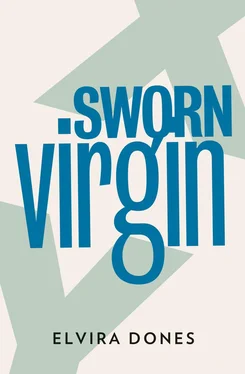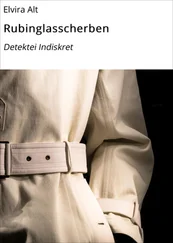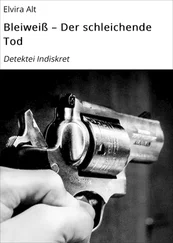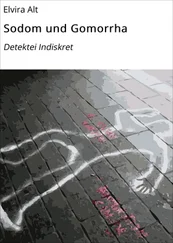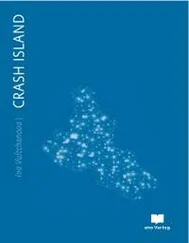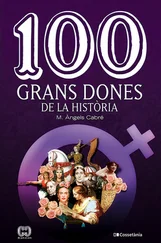At the end of June, however, Hana receives a letter from Patrick, saying he’s read her story. The whole thing, over and over, every detail. He won’t be able to return her manuscript, though, until he gets back from a trip to the Baltics, where he’s planning to stay for three weeks. He doesn’t plan to send it back by mail. It’s clear, he writes, that their relationship isn’t going to take a normal course, but he needs and wants to give her the book back in person.
It’s not a book, Hana thinks. It’s just my life. It’s just a life; books are different.
‘I hope to see you when I get back,’ he writes, ‘and if this letter irritates you, deal with it.’
Hana gets up, puts the letter on the table, and goes out onto the balcony. Kids are playing in the square below, skipping or throwing balls, most speaking Spanish, others calling out in languages from around the world. Two young black mothers, holding newborn babies, keep an eye on their older kids, but Hana can’t see who belongs to whom.
A month later, when they finally meet, Hana wears no makeup, although the week before she had highlights put in her hair.
They agreed on a stroll along the Potomac without too much haggling and, as they take the well-trodden path, Patrick tells her about his trip. Rowboats and kayaks slip along the river beside them. Having returned only the day before, Patrick is still jet-lagged, yet the conversation flows smoothly. Eight weeks have passed since their last, disastrous meeting. The neutrality of their surroundings clears the air.
Then Patrick abruptly changes tack, asking about Albania, the mountains, women’s rights under the Kanun, and the dictatorship. She answers diligently, leaving nothing out.
They stop and sit on a bench, enjoying the river view and watching the Washingtonians thronging the park.
‘Why did you do it, Hana?’ Patrick asks, after a long silence. ‘You never say why, in any of your diaries. From what I understood, your uncle would never have made you marry against your will. What you write about him doesn’t explain why you took such a drastic decision.’
She looks him straight in the eye and answers honestly, not worrying about sounding melodramatic. Her gesture, she says, honored Gjergj Doda, and gave him a few more months of life and dignity. If he had forced her to marry, he would have known he had done something she hated and he would have died a sad man. And if she had disobeyed him, Gjergj Doda would have lost face. The mountains couldn’t allow it. When Hana became a man, Gjergj died brimming with pride.
It was a gesture of love; perhaps it was also a delusion, Hana concedes, smiling and shaking her head. To start with she felt like a character in a play, like the heroine — no, the hero — of a popular novel. Then the feeling wore off, she admits, but by then it was too late, of course. Anyway, what was the point of regretting things up there in the cursed mountains?
She looks over at two squirrels fighting over an acorn. Patrick absorbs her words slowly. Then he takes her hand and shifts his body instinctively closer to her. She rests her head on his shoulder.
‘Welcome to my life, Hana,’ he murmurs. ‘Whatever direction our friendship takes, you’re in my life, and you are most welcome.’
Without another word, Patrick takes her home. In the car she stares ahead and says nothing. At her door, he kisses her forehead and leaves.
Hana stands completely still. She looks within herself, and is filled with nostalgia and happiness. She is rediscovering the Hana that used to be, the Hana who sat beside Gjergj Doda in his last hours, the Hana she has spent all these years trying to suffocate and forget.
She held the dying man’s hand for four whole days.
‘He’s on his way out. He’s more dead than alive, can’t you see?’ a doctor from the nearest town had said. ‘Let him go. If you allow him to, he’ll pass away this evening.’
Gjergj resisted for four more days, gripping Hana’s hand desperately. It was his hand that held on, not him. He would have let go sooner, but his hand wouldn’t allow it.
When his grip loosened and his fingers went cold, she understood it was time to think about the funeral. She didn’t look at his face. She got up and went to the bathroom. Her bladder had been killing her for the last three hours, but she hadn’t dared take her hand away.
She squatted over the toilet and finally let go, staring at the wall in front of her. In the corner there was an ancient patch of mold; as a child she used to see the shapes of animals and people in it, as if it were a cloud.
She checked all the rooms in the kulla to see that everything was in order. Then she went back to her uncle’s deathbed. Now she looked at him. She kissed him on the forehead. His eyes were closed, but he still did not have the color of death. Soon his skin would start to grow darker, she had heard.
You’re free now, Hana, she told herself. You’re done for.
It was five in the morning. Mark took the rifle off the wall and stepped out of the hut. He fired a few shots in the air to announce the death to the village.
In the days that follow, Hana can’t stop thinking about the walk with Patrick along the Potomac. She has succeeded in having an almost normal conversation with a man, and the awe he inspired in her now feels like a fledgling sense of self-confidence.
After all, she’s lived in the US now for a good year and a half, and she has made it. She hasn’t had, and still doesn’t have, the ability or the ambition to understand herself. That’s another matter altogether. Putting together all the pieces of her puzzle: this was and is her project. While she eats her solitary dinners, she thinks with a certain pride of how far this project has taken her.
She had the balls to do it. They still hurt from the effort. She smiles at the paradox. She’s made it on her own. That’s all that counts. The rest, the world, can wait. She is Hana, the Hana of her stories and of the skirts that sit badly on her hips. The world outside can wait. Take your time, please.
She feels replete, a little dizzy without drinking a drop, crazy and wise. She sings out loud and strides around the apartment like a general.
‘Get a grip,’ she admonishes herself. ‘And cut all this pride crap. Take it easy.’
She observes herself from the outside severely. ‘Be normal, for God’s sake.’
Nine days later, Patrick calls again. They decide to meet that evening. It is Monday. She has the morning shift at the bookstore so she has all the time in the world to get ready. She wants to be relaxed and in control of herself. She wants him to notice a change in her.
Even a relationship as weird as this one has its purpose, she tries to convince herself. The fact that she sought him out or that he wanted to listen wasn’t such a prodigiously big thing after all. People continue to tell stories, thank God. And thank God some people continue to trust others and sometimes that trust is not betrayed. Hana steels herself: whatever Patrick has in mind for that evening, she is ready. Her newfound serenity will not be lost.
Now is the time to tell Lila why she’s been lying low for the past few weeks. When Lila hears her voice she’s overjoyed.
‘I thought you had left town. I’ve missed you so much, I have a million things to tell you. I would have come over this evening anyway, I couldn’t wait any longer.’
Hana tells her cousin she won’t be home this evening so she had better tell her now. Lila talks as if a dam has opened. At the hospital where she has a cleaning job they said they could help her. They offered to fund part of her nursing course — only if she makes all her grades, of course.
‘I have to fill in a pile of paperwork,’ she says breathlessly.
Читать дальше
